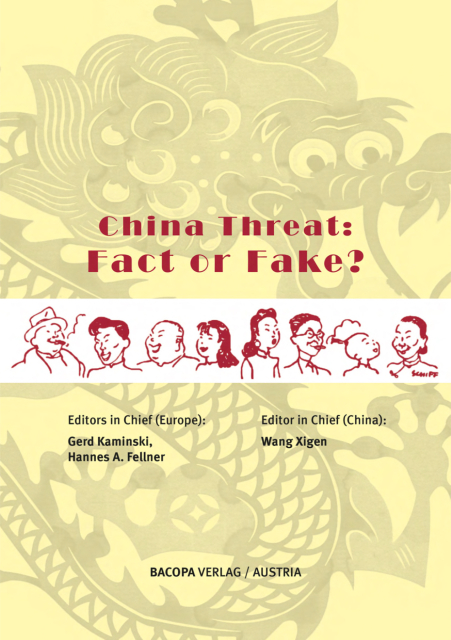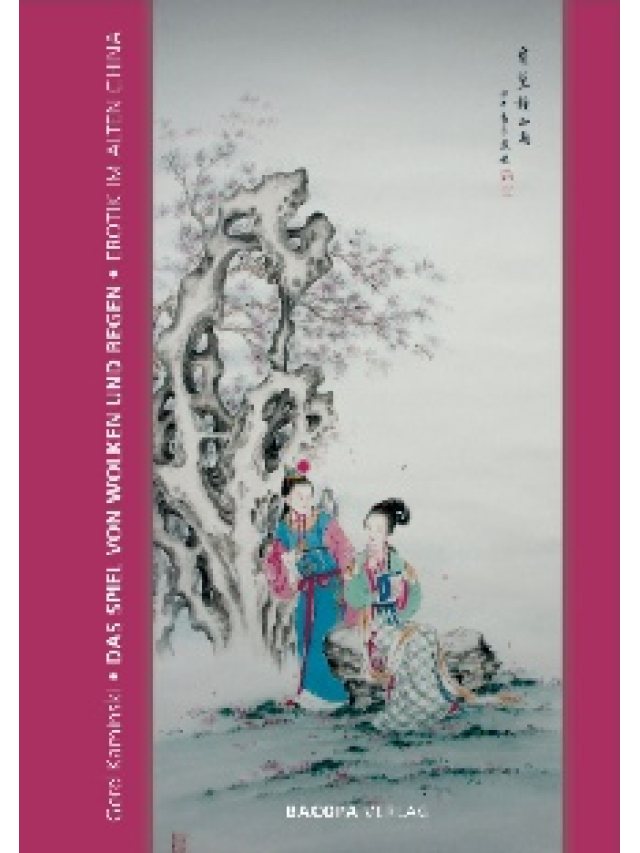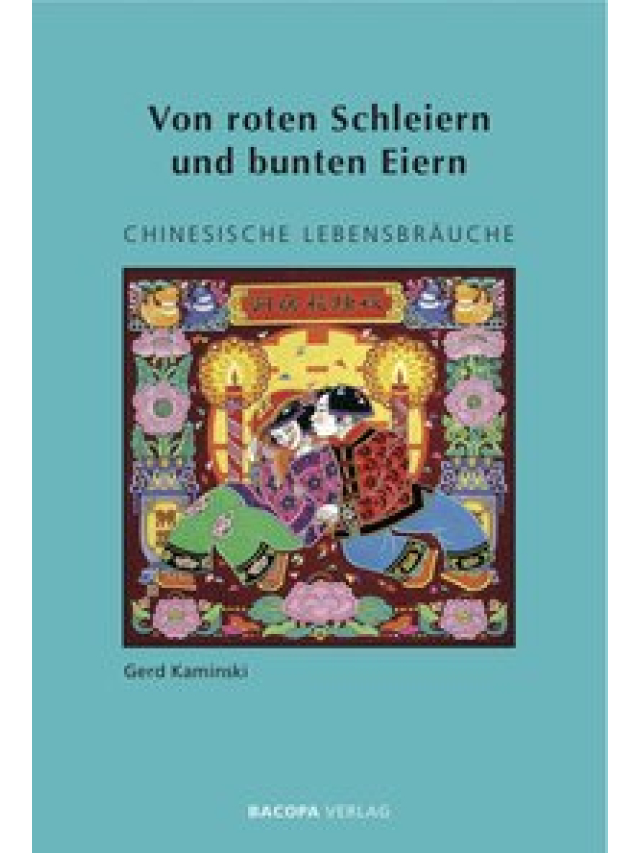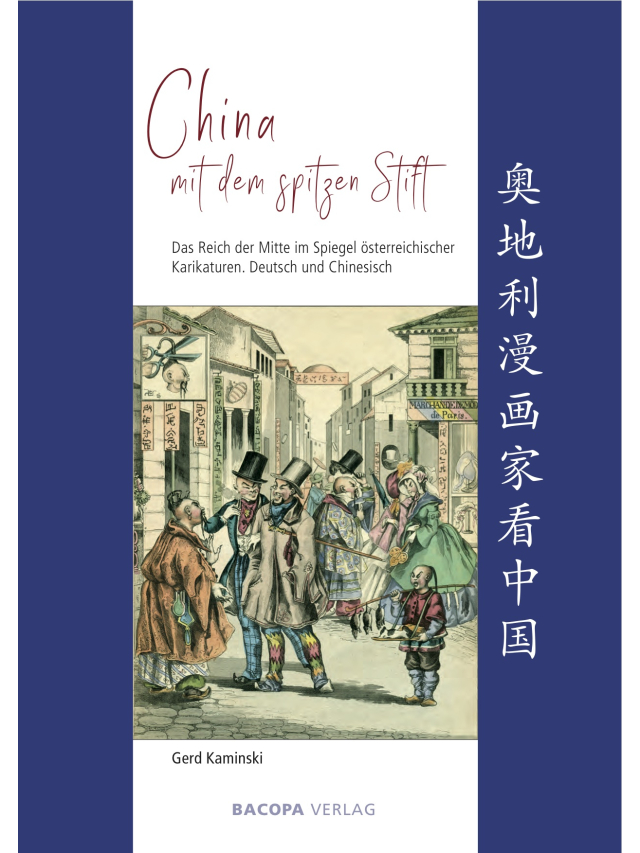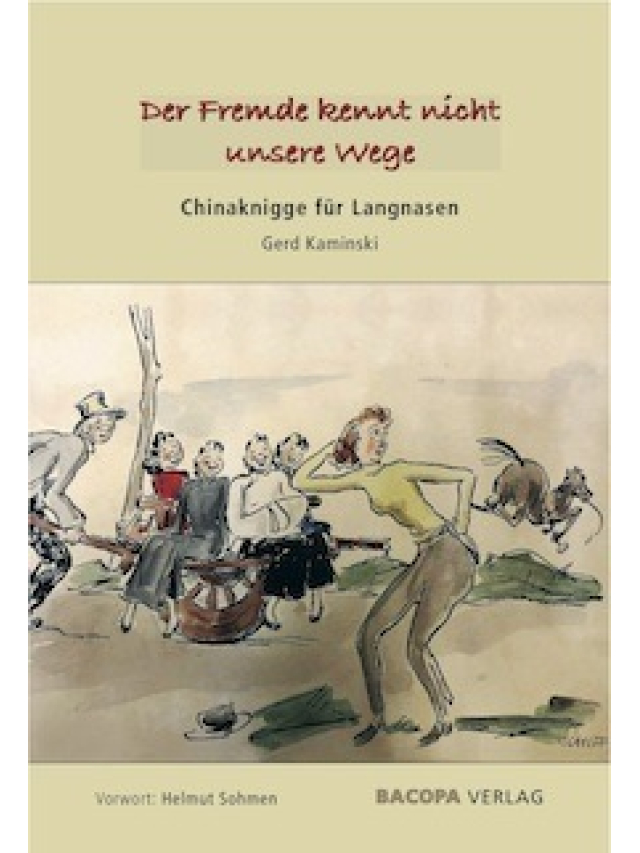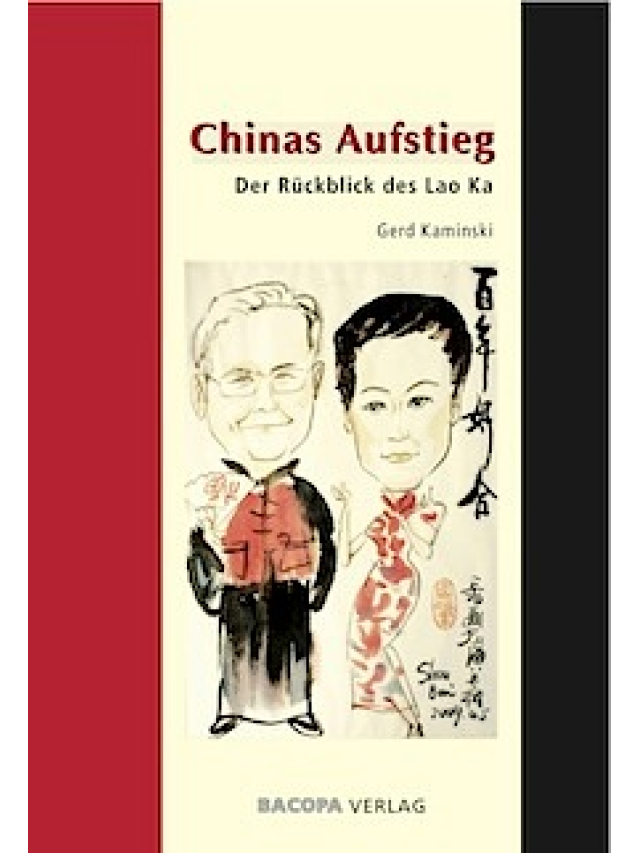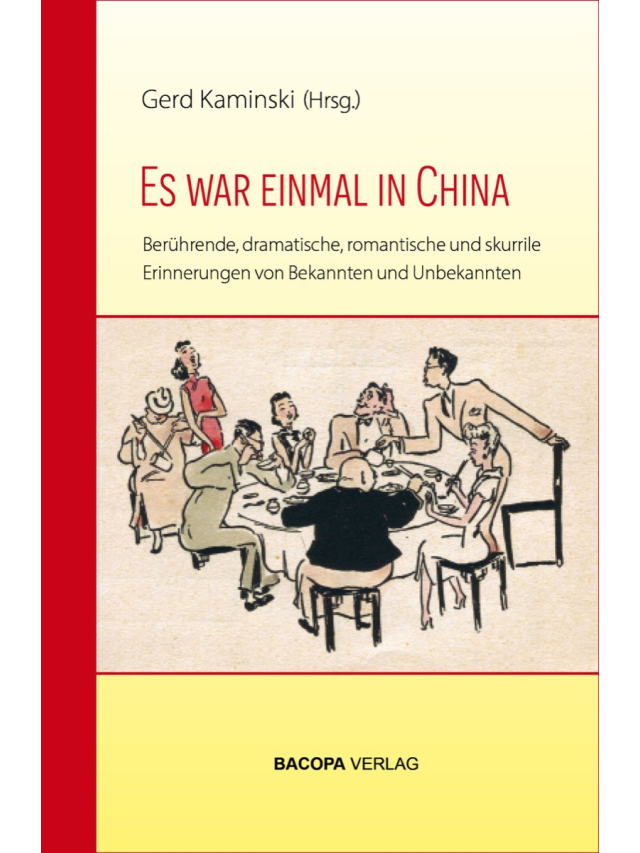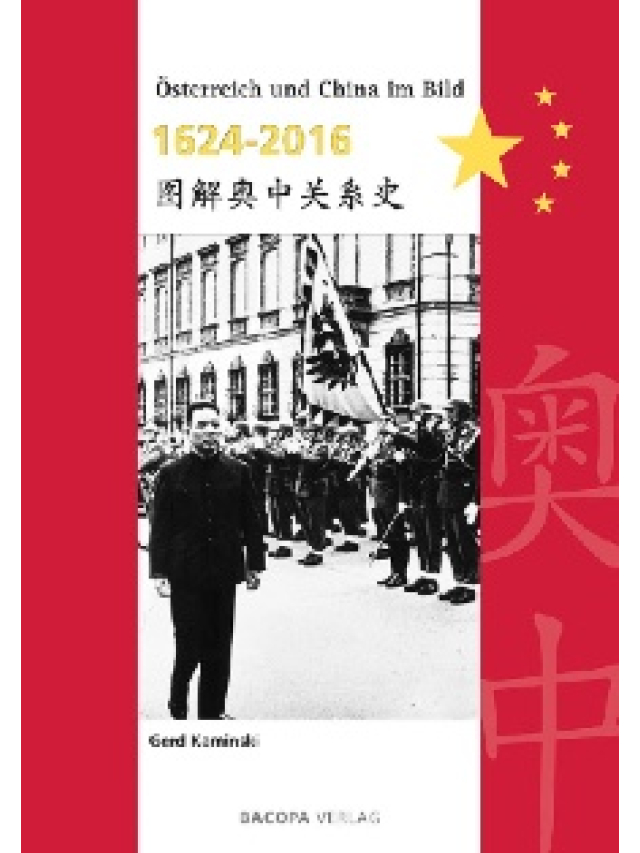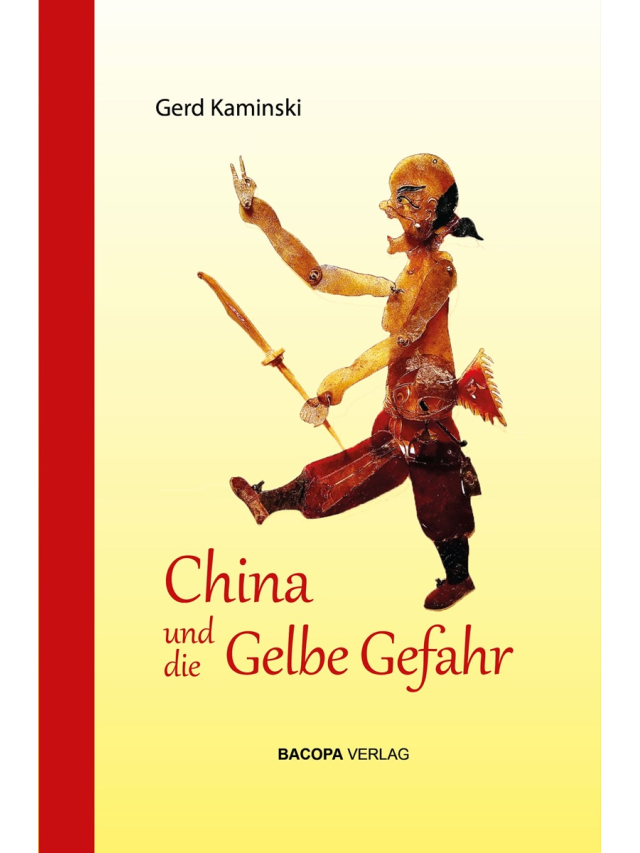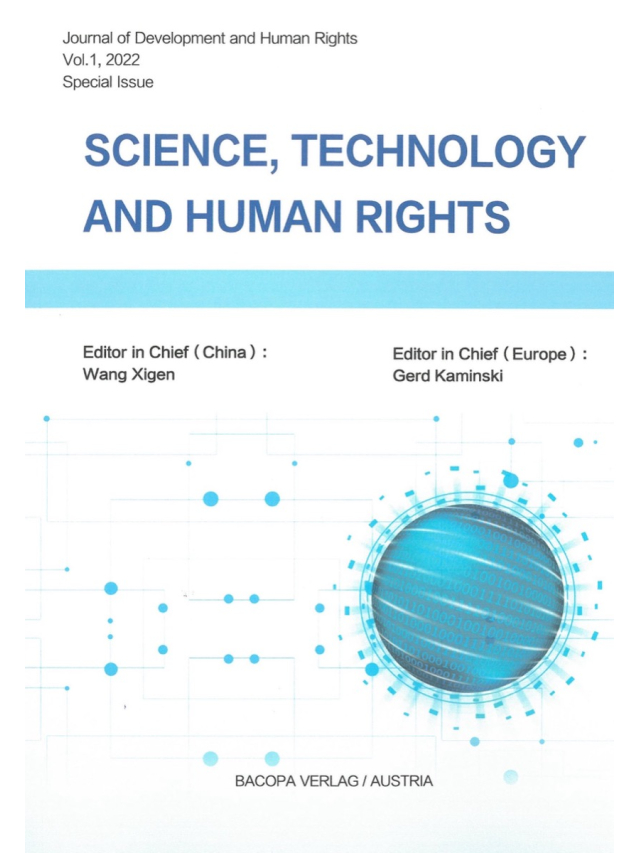China Threat: Fact or Fake? - Collected Papers of the 2022 International Symposium in Vienna
Von Gerd Kaminski (Autor/in)., Wang Xigen (Autor/in)., Heinz Fischer (Autor/in)., Tchen John Kuo Wei (Autor/in)., Wolfgang Kubin (Autor/in)., Karl-Heinz Pohl (Autor/in)., Byrappa Ramachandra (Autor/in)., Dragana Mitrovic (Autor/in)., Siu Lok (Autor/in)., Nikolaus Scholik (Autor/in)., Waltraud Urban (Autor/in)., Richard Trappl (Autor/in)., Wang Jing (Autor/in)., Irene Giner Reichl (Autor/in)., Jiagu Richter (Autor/in)., Si Fuzhen (Autor/in)., Hannes A. Fellner (Autor/in). | 544 Seiten | Erschienen: 17. 04. 2023 | ISBN: 9783991140344 | 1.Auflage
ACHTUNG: Wenn Sie aus Deutschland bestellen, steht zwar in unserem Shop, dass Versandkosten berechnet werden, werden aber nicht verrechnet.
Editor’s note
Prof. Gerd Kaminski
The reason why I organize this conference is that during the last decade there has been an increasing China Bashing in Austria, especially in the media. An increasing majority of Austrian journalists consider assessments about China only to be objective if they are negative. This tendency has spilled over from certain American politicians and think-tanks. First, it affected China Studies in other European countries, like Scandinavian countries and Germany. Now this attitude has gained influence in Austria as well.
I am doing research on China for about 60 years now. I am far from believing that everything what was and is happening in China has to be praised. However, I also believe that it is important to deal with China in a fair way. When doing research on China one should keep to the facts. Austrian media unfortunately create a monstrous China and they promote a China Threat, a fear from China. This is not a good way of dealing with a people comprising about 1.4 billion of the world population coming from a long cultural history.
The usual attacks on China are for instance human rights without paying any attention to Chinese history and the development in China since 1980. I am teaching about the Chinese conception of human rights in Vienna and try to point out that since Deng Xiaoping’s reform and opening policy all important universities in China including the party school do have human rights research centers. There has also been much improvement by introducing the administration law, enshrining human rights in the Chinese constitution. There has been much exchange with European countries, including Austria on these topics and in fact my institute
and I are part of it.
In 1979 I did host the first Chinese delegation of lawyers headed by Prof. Han Youtong, which at that time has been only allowed to visit Austria. For sure, there are still many shortcomings and China still has a long way to go, as it has been also emphasized in the last Chinese white papers on human rights. In my last book, I pointed out that recent efforts of some politicians and scholars to leave the common ground of the universality of human rights by creating something like human rights of their own it’s not helpful. On this long way China and the west should walk together on an equal path.
In this century, there are politicians and scholars in China who have the opinion that everything coming from the west is bad (we do not need Plato to promote Confucius). On the other hand, there is an increasing number of politicians, scholars and media in USA and Europe who believe
that everything coming from China is bad. I believe that both opinions are deplorable.
Other attacks on China reviving Yellow Peril scenarios are: “China is aggressive”, “China wants to buy up Europe”, “China infiltrates European democracies”, “China wants to replace the USA as the hegemon of the world”, “China wants to impose an imperial pax sinica system on
the world”.
The situation in China is much more complex and the media refrain from thorough investigation and analysis. Recently, Austrian media make more and more use of the term “China Versteher” (understanders of China) for slandering those who propose a fair dialogue with China. Lots of books are published recently containing ridiculous accusations, such as the German author Strittmatter, who tells his readers that China is so aggressive that all over the country the people pay tribute to the God of War in many temples. Other authors explain why China is aggressive by using the argument that Chinese like to play Wei Qi (Go). Other authors simply falsify translations of the sayings of Chinese philosophers or politicians of present time. During the Winter Olympics Austrian and European media launched attacks concerning the pollution and waste of natural resources in connection with the Games. In fact, the artificial snow was produced by an Austrian company whose manager had told the press in vain that due to his company’s advanced technology nearly no water was wasted.
As the great Austrian diplomat and sinologist Arthur von Rosthorn expressed in one of his essays:
“We must take serious efforts for real and deep understanding of China“,
this is the reason why I organize this conference.
2. Opening remarks
Dr. Heinz Fischer
China, the “big other” as authors sometimes call it, has increasingly become part of our lives, despite the label “other”. Politicians start their election campaigns with TikTok, quite a few make calls with Huawei and Xiao Mi or use a Lenovo computer. We have noticed which products we are missing when supply chains are disrupted in China. China is increasingly portrayed as a threat in media headlines. The tried and tested principle of checking and counter-checking is often missing from these reports.
It is all the more important that recognized experts from four continents have come together here in the old Palais Trautson, for whom checking and counter-checking is important in their research.
Once upon a time, in this location, Maria Theresa‘s bodyguards resided to protect her in troubled times. Today, it is important to protect principles such as objectivity in research, audiatur et altera pars – also listen to the other part and to defend the priority of international understanding over mistrust and feelings of superiority.
The range of different lectures is very diverse. It seems to me that they cover most of the essential aspects of the Chinese phenomenon.
From the biographies of the speakers, I can see that these are experts who do not view China from an ivory tower. Rather, they are personalities who have been dealing with China intensively for a long time and know the country well. These are the basics of balanced expertise.
I myself have always stuck to the proven Chinese proverb “Seeing once is better than hearing a hundred times” and for this reason I have visited China several times, both officially and privately.
A few years ago, I opened an Austro-Chinese International Internet Conference, a collaboration between the Austro-Chinese Society and the Human Rights Center of Huatschung University in Wuhan. It was dedicated to the subject of human rights and technology. I remembered an experience I had in Hefei in 2019. A high-performance computer in the form of an elegant lady was presented at a large technology fair. I asked her how old she was and got the amazing answer: ‚I am a lady, and you should know that you shouldn‘t ask a lady her age.‘ I‘m still impressed when I think about that scene today. What a level of programming!
But China and the countries represented here have more to exchange than technology. The great diplomat, humanist, peace activist and sinologist Arthur von Rosthorn recognized this. Rosthorn, who set up the Austrian embassy in Beijing in 1896 and headed it between 1911 and 1917, was very concerned about honest dialogue with China. Therefore, he handed over a memorandum to the American delegation at the peace conference in Paris in March 1919, in which he finally expressed his main concern:
“In conclusion, I would like to emphasize one more point, which is of great importance for our relationship - I mean the relationship between Europe and America - and China. So far, we have made very little effort to really get to know China. A greater familiarity with the character and
institutions of the Chinese people would have spared us many mistakes in the past and could make our relationship with China more trusting and ultimately more profitable in the future.
Rosthorn‘s words have not lost their meaning in this century. International symposia like today’s are particularly suited to putting Rosthorn‘s advice into practice. So, I am looking forward to interesting, diverse and informative lectures and contributions.
With this in mind, I declare the symposium open and wish it the success it deserves.
- Editor's Note Prof. Gerd Kaminski
- Opening remarks Dr. Heinz Fischer
- Who’s More “Green”? The US-China No-Win Endgame of Fear & Paranoia,
- The Viable, Practical Path Ahead Prof. John Kuo Wei Tchen
- China’s Experience in Safeguarding the Right to Life and Health in Epidemic Response Prof. Wang Xigen
- Politics of Headlines or Free Dictatorship of Free Media
- Yellow Peril in German Media. Prof. Wolfgang Kubin
- Land of Wonders – Land of Monsters: The Image of China Prof. Karl-Heinz Pohl
- The Metamorphoses of China’s Image in Austria Prof. Gerd Kaminski
- China: Yellow Peril or Yellow Blessing? Prof. Ramachandra Byrappa
- Yellow Peril Traditions in India? Prof. Ramachandra Byrappa
- China Threat? The Old Silk Road Prof. Hannes Fellner
- Yellow Peril in Africa: A Case Study of Sinophobia in Ghana Prof. Adams Bodomo
- "Chinese Economic Expansion in the Balkans and '17+1' and 'Chinese negative influence' narrative" Prof. Dragana Mitrovic
- Economic Aspects of a China Threat? Waltraud Urban
- “Yellow Peril: A Weapon of Containment in the US-China Struggle” Prof. Lok Siu
- Enforcement of Intellectual Property Rights in China: International Commercial Arbitration as the Ideal Means of Dispute Resolution? Prof. Adolf Peter
- China and Global Environment MMag. Dr. Irene Giner-Reichl
- Confucius Institutes, Chinese Expansionism by Non-Military Approach? Prof. Richard Trappl
- My personal experience as Chinese Co-Director in the Confucius Institute at the University of Vienna Prof. Wang Jing
- China: A Military Menace or can it rise peaceful? Dr. Nikolaus Scholik
- Is China a Global Military Threat? Prof. Gerd Kaminski
- South China Sea – a closed battlefield or an open seaway? Prof. Jiagu Richter
- Principle of Universality and Linguistic Analysis on “XN Threat” Prof. Si Fuzhen
------------------
Mag. Dr. Nikolaus Scholik, Born in 1945; Colonel i.r.; ET 1966, JgS/ EFKp1; 1973-2010 militia officer; Oct.-Dec. 2003 assignment abroad EUFOR/Concordia; Oct. 1967 - April 2012 active in private sector. Parttime studies at the University of Vienna / Department of Political Science from October 2002 to May 2012; Mag. phil. January 2008; Dr phil. May 2012.
Prof. Richard Trappl was born in Vienna in 1951, he had studied Germanic Studies and Sinology at the University of Vienna and made his PhD in 1978. 1974/75 he had studied Chinese language in Beijing. From 1978 onwards he was assistant and assistant professor at the Department of Sinology in the University of Vienna. 2003 after his habilitation he became Associate Professor for Sinology. From 1997 until 2011 he was University Representative for China Affairs of the University of Vienna. Since 2006 until present he is the Austrian Director of the Confucius Institute at the University of Vienna. 2011 he became Honorary Professor at the Chinese University of Political Science and Law (Beijing), 2019 Guest Professor at Beijing Language and Culture University. His focusses in research and teaching are classical and modern Chinese Literature and Chinese-Western intercultural studies. Since 1974 he has made frequent visits to China and other East Asian countries for research and research organization. He gave numerous lectures in China, Europe and the
Americas. Until present he teaches Chinese Literature the Department of East Asian Studies of the University of Vienna and Chinese culture and international relations at the Austrian Diplomatic Academy in Vienna.
Dr. Irene Giner-Reichl; she retired from the Austrian Diplomatic Service 2021; was Austria‘s Ambassador to the PR of China from2012 to 2017 and continues to nurture relationships to the Middle Kingdom and to follow developments in China with keen interest.
Dr. iur. Dr. phil. Adolf PETER, LL.M., MA, CSE is Associate Professor at the Shanghai University of Political Science and Law focusing on international commercial arbitration, the enforcement of ESG standards in international supply chains and EU law. In addition, Dr. Peter is International Of Counsel in several international law firms headquartered in Vienna, Austria, Mexico City, Mexico and Washington D.C., USA. A selection panel established by the European Commission found Dr. Peter suitable for appointment for the position of Arbitrator and Trade and Sustainable Development Expert (TSD Expert) in bilateral disputes under the EU’s trade agreements with third countries. He holds two PhD and two Master degrees in Law and Religious Science, an LL.M. degree in South East European Law and European Integration (Karl-Franzens University of Graz, Austria) and a Master degree in Applied (Business) Ethics. In February 2021, Springer Singapore published his book “CSR and Codes of Business Ethics in the USA, Austria (EU) and China and their Enforcement in International Supply Chain Arbitrations” (ISBN: 978- 981- 33-6072-3).
Dr. Peter is listed as arbitrator in 10 international arbitration institutions, including ICC, SIAC, SHIAC, CMAC, SHAC, VIAC, THAC, etc.
Furthermore, Dr. Peter is Certified Supervisory Expert recognized by the Austrian Economic Chamber (WKO).
Lok Siu, Professor, Department of Ethnic Studies; Chair, Asian American Research Center.
Program Coordinator, Asian American and Asian Diaspora Studies (AAADS).
Affiliated Faculty of Berkeley Food Institute, Center for Race and Gender, Center for Chinese Studies, Center for Latin American Studies, and BIMI.
Recent Publication:
Chinese Diaspora: Its Development in Global Perspective (Zoryan Institute 2020)
Waltraut Urban is a free-lance economist and a fellow at the Austrian Institute for Research on China and Southeast Asia. Her main research areas are the economic development of China and the relationship between China and the EU respectively Austria. She graduated in economics at the University of Vienna. Her last post was at the Vienna Institute for International Economic Studies (wiiw), where she focused her research on the Chinese economy on the one hand and on industrial restructuring in the Central- and Eastern Europe countries on the other. In prior positions she was an economist at the Austrian Institute of Economic Research (wifo) and the Austrian Institute for International Affairs (aiia). She participated in many international research projects (e.g. European Commission, UNIDO) and has published many articles and given numerous lectures on China, including courses at various universities, e.g. the
Vienna University of Economics and Business Administration. Her last publication was titled: Austria’s political and economic relationship with China 1989-2019, in Tamas Matura (ed.) ‘China and Central Europe: Success or Failure?
Dragana Mitrović, is full time professor at the University of Belgrade, Faculty of Political Sciences and founder and director of the Institute for Asian Studies (ias.rs), as well as the chief editor of the academic journal Asian Issues. She is leading regional expert for economy, politics and security of modern China and the East Asia. She also served one term in Foreign Service at the Embassy of the FR Yugoslavia in Beijing. Professor Mitrovic teaches Political Economy, International Political Economy, Political Economy of the PR China and East Asia, Geopolitics and Geo-economics. She is the head of the Regional Asian Studies master course. Prof. Mitrovic is the author of five books and more than sixty papers. She took part in more than forty international scientific conferences as an invited speaker.
Prof. Dr. Adams Bodomo is a distinguished scholar, accomplished author, a leading advocate of African languages in the literary world,
and a pioneering scholar on 21st Century Africa – China relations. For over 40 years, he has taught at many prestigious universities around the world including the University of Ghana, Stanford University, University of Hong Kong, Bayreuth University, and the University of Vienna, Austria. He is currently one of the most prominent scholars in the field of Linguistics and African Studies globally. Indeed, he is one of the first Black scholars to be appointed into the position of Chair Professorship in Austria, the highest academic position in the German-speaking world. He has won several prestigious fellowships and research projects throughout his academic life. One of his best known books is Africans in China: A Sociocultural Study and Its Implications for Africa – China Relations (Cambria Press, 2012).
Prof. Hannes A. Fellner studied linguistics at the University of Vienna and received his PhD from Harvard University in 2013. He was a postdoctoral researcher at the University of Vienna and assistant professor at Leiden University. Since 2018 he is the principal investigator of a START-project funded by Austrian Science Fund dedicated to the research of the Central Asian variants of the Indian Brahmi script. He is currently associate professor for historical linguistics and digital philology at the University of Vienna. He is a member of the Austrian Academy of Sciences and one of the directors of the Austrian Institute for Research on China and Southeast Asia.
Ramachandra Byrappa left India at an early age to pursue his studies in Western Europe. He won scholarships to study in France and later completed his A-levels in Oxford. With a keen interest for international relations, he moved to the University of Kent to do his BA. After a brief study of economics at the University of Düsseldorf he moved to the prestigious Institut d’Etudes Politiques (Science Po’) in Paris where he completed a master’s degree in Economics and Finance. After occupying various management positions, he returned to the academic world by attaining a PhD at the Eötvös Loránd University (Budapest) in 2014, and soon after started teaching contemporary Asian History and Geopolitics at the same establishment. Since 2017 he also lectured on modern India at Pázmány Péter Catholic University. His main academic interests are: Structural Resilience of Institutions, Modern India, British Empire, Geopolitics of Eurasia, Diasporas, Predator Communities, Frontierism and Civilizational Compatibility.
Prof. Karl-Heinz Pohl (卜松山): Born 1945. 1982: Ph.D. University of Toronto; 1987-1992: Professor of Chinese Studies, Tübingen University.
1992-2010: Chair of Chinese Studies at Trier University (Germany); now retired.
Fields of Research: Chinese History of Ideas; Ethics and Aesthetics of Modern and Pre-Modern China; Chinese Literary Theory; Intercultural Communication and Dialogue between China and the West.
Publications (selection): Cheng Pan-ch‘iao (郑板桥): Poet, Painter and Calligrapher, 1990; Aesthetics and Literary Theory in China – From Tradition to Modernity, 2006 (in German and Chinese translation: 卜 松山 : 中国的美学和文学理论). Ed.: Chinese Thought in a Global Context: A Dialogue Between Chinese and Western Philosophical Approaches, 1999. Ed.: Chinese Ethics in a Global Context. Moral Bases of Contemporary Societies, 2002. Translator of Tao Yuanming‘s (陶渊 明) complete collection of poetry into German Der Pfirsichblütenquell (The Peach Blossom Spring), 1985. German translation of Li Zehou‘s ( 李泽厚) The Path of Beauty (美的历程): Der Weg des Schönen, 1992. China for Beginners (in German: China für Anfänger, 2008) in Chinese translation as卜松山: 发现中国 - 传统与现代 (2016).
Prof. Wolfgang Kubin (Chinese: Gu Bin), born in Celle in 1945, has been working and teaching as a senior professor since 2011, first in Beijing and now in Shantou. In addition to his academic work, he translates and writes poetry, essays and short stories. He has won many awards in China and Germany. He is one of the most respected sinologists in Europe.
Wang Xigen, Dean of the Law School of Huazhong University of Science and Technology (HUST), Director of the National Human Rights Education and Training Base at HUST. He has been selected as a “Cheung Kong Scholar Distinguished Professor”, a National Leading Talent in Philosophy and Social Sciences under the “Ten Thousand People Plan”, Cultural Celebrities of “Four Batches” Talents Plan, the National Hundred Million Talents Project, Ten Outstanding Young Jurists of China, the New Century Talents of the Ministry of Education, and the Hundred Outstanding Doctoral Theses of China. He has received more than 20 awards, including the first prize of the National Excellent Teaching Achievement Award. He has published 30 books in Chinese, English and Japanese in China, Japan, the Netherlands, Austria and other countries, and over 200 papers in Chinese, English and Japanese in national and international newspapers and journals. He is an authoritative expert in the field of human rights law, the right to development, the rule of law and justice, and has presided over the drafting of the White Paper on China’s right to development and the UN draft criteria, resolution and convention on the right to development.
Jack (John Kuo Wei) Tchen is a historian, curator, dumpster diver, and teacher. Professor Tchen is the Inaugural Clement A Price Professor of Public History & Humanities at Rutgers University – Newark and the Director of the Clement Price Institute on Ethnicity, Culture & the Modern Experience, Rutgers – Newark.
Recently, he organized the Anti-Eugenics Project to reckon with the centennial
of the Second International Eugenics Congress held at the American Museum of Natural History in 1921. “Dismantling Eugenics” sought to surface, reckon, and transform the unresolved, disabling impacts of such practices and policies on the US political culture, ultimately addressing why we as a nation have trouble dealing with public policy challenges such as the COVID pandemic and global warming. Tchen currently serves on the New York City Panel on Climate Change (NPCC). He is working on a special report about the history of the estuarial region and the ecological impacts of settler colonialism and how their extreme extraction practices, driven by global trade and US expansionism, still continue to wreck havoc to this day.
Tchen served as the senior historian for a New-York Historical Society exhibition on the impact of Chinese Exclusion Laws on the formation of the US (2014–15) and also as senior advisor for Ric Burns and Lishin Yu’s American Experience PBS documentary on the “Chinese Exclusion Act” (2017). His book Yellow Peril: An Archive of Anti-Asian Fear (2014) is a critical, archival study of images, excerpts, and essays on the history and contemporary impact of paranoia and xenophobia. He also cofounded the Public History Project (PHP) in 2019, reframing the history of the estuarial region starting with the twined foundational histories of dispossession and enslavement (work emerging from serving as a Commissioner on the NYC Mayor’s Commission on Monuments in 2018) and grappling with our settler colonial illiteracy about the land and waters upon which we all live. He was founding director of the A/P/A
(Asian/Pacific/American) Studies Program and Institute and part of the founding faculty of the Department of Social and Cultural Analysis at New York University (1996–2018). In 1980, he cofounded the New York Chinatown History Project, now called the Museum of Chinese in America. In addition, Tchen has produced and curated many productions including websites, films, exhibitions, archives, and countless public and academic programs. He has written essays, articles, and authored/edited awardwinning books, notably Genthe’s Photographs of San Francisco’s Old Chinatown (1984); The Chinese Laundryman: A Study of Social Isolation by Paul C. P. Siu (1987); and New York Before Chinatown: Orientalism and the Shaping of American Culture, 1776–1882 (1999).
| Verlag | [Firma Bacopa Verlag] |
|---|---|
| ISBN | 9783991140344 |
| Auflage | 1 |
| Sprache(n) |
Englisch |
| Ausführung |
Gebunden |
| Erschienen | 2023 |
| Seitenzahl | 544 |
| Illustrationenzahl | 544 |
| Cover |
Hardcover |
Autor/in | Gerd Kaminski (Autor/in) , Wang Xigen (Autor/in) , Heinz Fischer (Autor/in) , Tchen John Kuo Wei (Autor/in) , Wolfgang Kubin (Autor/in) , Karl-Heinz Pohl (Autor/in) , Byrappa Ramachandra (Autor/in) , , Dragana Mitrovic (Autor/in) , Siu Lok (Autor/in) , , Nikolaus Scholik (Autor/in) , Waltraud Urban (Autor/in) , Richard Trappl (Autor/in) , Wang Jing (Autor/in) , Irene Giner Reichl (Autor/in) , Jiagu Richter (Autor/in) , Si Fuzhen (Autor/in) , Hannes A. Fellner (Autor/in) |

